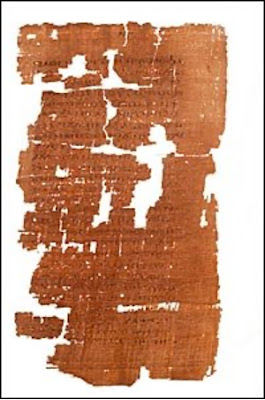A hallmark of God’s true Church is government conducted with an attitude of servant leadership. From God the Father, to Christ the head of the Church, to human beings positioned by Christ on the earth, this chain of government and, ultimately leadership, is essential to the function of the Church.
Did you catch the "attitude servant of leadership"? Imagine having "servant leaders" in the LCG! Shocking, I know!
Question(Pose to group if you like): What causes a breakdown or malfunction in Church government?Answer:When people usurp authority not given to them or when they do things that are someone else’sresponsibility, or when they fail to communicate effectively.
LCG just cannot stand anyone daring to do anything on their own without getting a minister's permission.
We need to understand how to recognize, follow, and submit to God’s government in faith. This is a subject that has been preached about, talked about, and studied, yet few really understand the importance of this action. If we are to serve in God’s Church, we must understand, respect, and follow God’s government in order to serve God and His people properly and set a right example.
Here we go again. Members are too stupid to follow church government. Its all their fault. Its never the fault of ineffective leaders.
Most worldly churches, although frequently well meaning, practice an unbiblical form of church government. The Presbyterian or democratic form of government places the “board” or deacons in positions where they direct the minister. The minister is expected to pastor the sheep, but only as far as the deacons or board sees fit. And when there is dissention among the board or deacons, the pastor does not have the ability to make decisions or solve the problems. Additionally, the pastor’s position becomes a political one, as he must avoid teaching forcefully and addressing personal sins, lest he be terminated by board members or deacons who might be offended. Churches that practice a non-biblical, democratic form of government, wind up with the same political issues that face most nations of the world today.“Because, in our modern "democracies" (whether pure democracies or representative republics), the politicians campaigning for public office must be very selective about which facts to tell the voters. Generally, they must tell the public only what the people want to hear—whether it is true or not. If the politicians confront the public with too much reality, it is equivalent to committing political suicide!”CLASS OVERVIEW
In this class we will:•Review God’s form of “top down” but merciful government.•Highlight the needs for godly Church government.•Highlight the consequences of ungodly forms of Church government.•Highlight why we must “look to the pastor” and “look to Headquarters” as the earthly authority in spiritual matters.
“And although it is terribly neglected by most professing ministers of Jesus Christ, one of the primary emphases of Jesus’ message was the coming Government of God.” Meredith, R.C. (March-April 2005). The Future of Democracy. Tomorrow’s World(p.7).
Although Mr. Meredith’s quote directly described governmental politics, the same can be said about church politics in democratic church governments. Today, in many churches run by boards, a minister can also commit professional suicide if he tells his congregations what they do not want to hear. Can God really use this type of government to inspire and direct His ministry to exhort and correct the brethren when necessary, and to provide “meat in due season?” No – in fact, it inhibits open, honest, God-inspired exhortation and admonition.
When has there ever been open, honest, and God-inspired exhortations and admonitions from LCG leaders???? The better question to ask is when has LCG leadership ever acted in a loving and merciful manner to its members? When, has it ever been grace-filled? When has it ever placed Christ above government and the law?
Is it any wonder why LCG is in such a mess when this is where their admitted hallmark lies?



